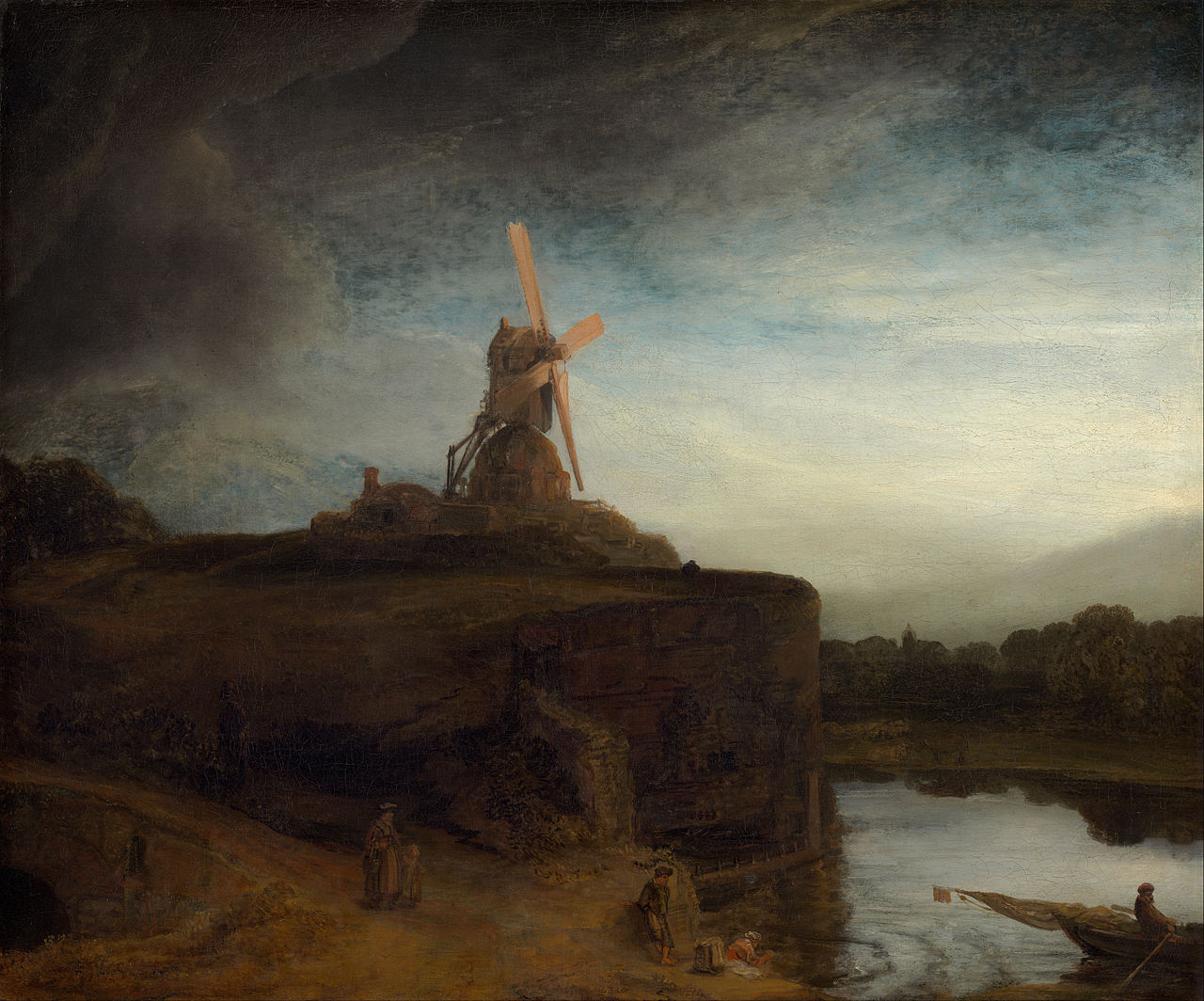Chiaroscuro
is a painting technique that uses light and dark elements in a work to create
striking effects, often by contrasting very dark and very light elements. The
term "chiaroscuro" originates from the words meaning
"light" and "dark" in Italian: chiaro and scuro. This
painting technique dates back to the Renaissance, when it was used by artists
like Leonardo da Vinci, who painted his famous Mona Lisa using this method. By
employing a few of these techniques yourself, you can make your paintings look
more professional and impactful!
In art history, it is
also known as "chiaroscuro" or "highlighting" in English.
The technique is a popular one in art history, especially with painters from
the Baroque period, who favored its ability to create drama and emotion.
Chiaroscuro is a method
of shading and coloring on a two-dimensional surface that gives it
three-dimensional visual depth. It was developed in Florence in the 16th
century by the Italian artist Giotto di Bondone, who was known for his
realistic style and use of color.
Chiaroscuro can be used to
describe a wide range of art styles, but it's most commonly associated with oil
painting and photography. In these two mediums, chiaroscuro has been used
throughout history by artists such as Rembrandt van Rijn (1606–1669) and
Caravaggio (1571–1610). The technique is also frequently employed in pen
drawing—in fact, some artists believe that pen drawings are better suited to
this style than other forms of illustration because they allow them to focus on
value transitions rather than line quality or texture effects.
The technique of
chiaroscuro is used to create a sense of depth and volume in a painting.
(“Explore Thomas Cole | Definitions”) The contrast between light and dark areas
is used to indicate the three-dimensional form, as well as the illusion of
distance. This contrast helps to give a sense of space, creating an illusion
that looks real enough to touch. Chiaroscuro can also be used to create the
effect of different textures on different surfaces by using varying degrees of
contrast between light and dark areas within each surface.
Artists who use this
technique:
Leonardo da Vinci
Michelangelo
Caravaggio
Rembrandt
Titian
El Greco painted many paintings
in chiaroscuro, including "The Burial of Count Orgaz". He used the
technique to create dramatic contrasts between light and dark areas which
helped to emphasize the subject matter of his paintings. In addition, he used
chiaroscuro to make his figures appear as if they were living beings by using
shadows as a means for creating depth and dimension. Other examples of artists
who used chiaroscuro include Velázquez’s “Las Meninas” and Goya’s “Los
Caprichos".
 |
The Mill, 1648 Source-Wikipedia |
The basics of this technique
are as follows: Chiaroscuro can be used with any subject matter but has been
especially popular for religious paintings that contained people depicted in
the foreground while depicting a background full of lights and shadows that
contrast with the figures. Chiaroscuro is a method of painting that utilizes
the contrast between light and dark to create a sense of depth and realism.
This technique was first used in painting during the Renaissance period, but it
has also been used in film production for many years.
In addition to creating a sense
of depth, this technique can also be used to create dramatic or emotional
effects. For example, if you have an actor standing in front of a bright
background with their face in shadow(perfect example we can see in The Godfather), it will look like they are glowing from
within—a very powerful effect! Chiaroscuro was originally developed in Florence
during the Renaissance period by Leonardo da Vinci and other artists, who
learned about it through their study of Roman sculpture and Greek art. In film,
this technique has been used throughout history to create images that appear to
be more realistic than what we see with our own eyes—and that is no
coincidence. It's often said that chiaroscuro is not just a technique of
painting but also an approach to life—one that values balance over extremes,
light over darkness, truth over deception.
As we have seen, this
technique has been around for centuries and remains a practical and artistic
tool. It creates the illusion of light and dark to bring more depth to an
image.
But what do you know
about this method? How would you describe it?
Well, it's basically just a
fancy way of saying "the use of light and dark." It was developed in
Italy during the Renaissance period as a way to make paintings more realistic.
The concept is simple: Light illuminates objects and darkens shadows. Artists
often used this technique to create depth.

No comments:
Post a Comment